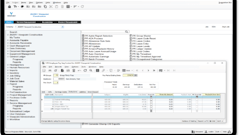
Originally published by Matthew DeVries on Best Practices Construction Law blog.
In construction contracts, parties attempt to use plain and ordinary words to describe their respective obligations.
As an example, when the parties use the word “shall” in their agreement, they generally understand that the obligation specified is mandatory. Or when parties use the word “may” in their contract, performance is permissive or optional given the plain meaning of the word.
Given the trend that the courts have interpreted the term “may” as “shall” in the context of arbitration agreements, parties to a construction contract must be careful in understanding both the plain, ordinary meaning and the legal meaning of the particular words used.
(read the entire article "Construction Contracts and Arbitration Provisions: Is the Word 'May' Mandatory? Maybe!"...)



























